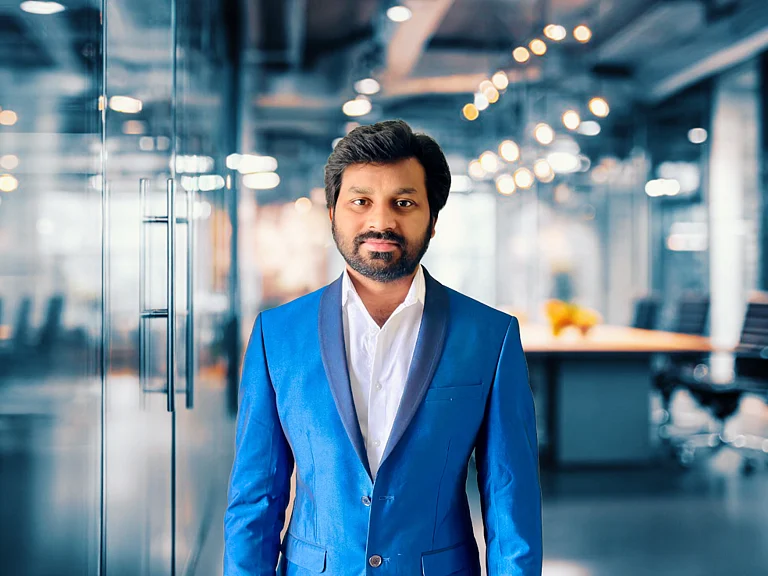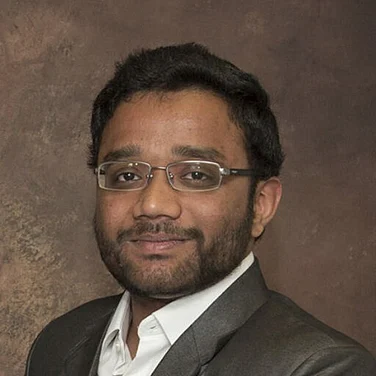There are leaders who manage teams, and there are leaders who redefine the way people think. Raman Krishnaswami belongs to the latter. Known for his calm precision and depth of insight, he has guided organizations through major transformations while remaining grounded in a simple philosophy: real progress begins with trust.
Colleagues often describe him as someone who listens deeply, speaks deliberately, and leads by conviction. In an era when technology races ahead of reflection, Krishnaswami stands out for bringing clarity to complexity. He believes that leadership is not about control but about creating confidence, and that the most lasting success is built quietly through purpose and discipline.
Personal Profile
Raman Krishnaswami is an accomplished technology executive with more than two decades of global leadership experience. He holds advanced degrees in Computer Science and Management and currently serves as the Chief Information Officer at EagleView Technologies, where he directs large-scale modernization and technology governance programs. Before this, he held senior roles at SAP, overseeing international engineering teams that supported enterprise-level digital transformation.
He received the 2024 Seattle ORBIE Award and the 2025 Global Recognition Award for exceptional leadership in AI and Digital Strategy, honors that reflect his lasting influence on the global technology community. He also serves on the Advisory Board of the Inspire Leadership Network, mentoring executives on responsible innovation and ethical decision-making. Known for his clarity, empathy, and consistency, Raman Krishnaswami continues to inspire professionals who view technology as a catalyst for trust, inclusion, and sustainable growth in the digital economy.
Leading with Clarity
For Krishnaswami, structure is the foundation of progress. “Innovation does not need chaos,” he often says. “It needs trust, purpose, and direction.” Under his leadership, teams learn to balance imagination with accountability so that every idea serves a clear purpose.
Those who have worked with him recall how his measured approach transforms uncertainty into progress. He often reminds his teams that every great decision, like every great system, begins with trust. That single belief has guided him through decades of change and continues to shape his leadership style today.
Mentorship and Human Connection
Beyond professional titles, Krishnaswami is admired as a mentor who develops others. He spends time understanding people—their strengths, goals, and motivations—and helps them find clarity in their own thinking. Many of his mentees now hold leadership roles across industries, carrying forward his philosophy of thoughtful progress.
He views leadership as a shared responsibility. “A good leader makes decisions,” he says. “A great leader builds decision-makers.” His focus on trust, empathy, and communication has helped build cultures where innovation feels human and accountability is instinctive.
The Essence of Responsible Leadership
For Krishnaswami, the future of technology will depend as much on conscience as on capability. He believes that power without responsibility leads to fragility, and that wisdom—not speed—is the true measure of innovation. He often reminds younger professionals, “We have taught machines to remember, but our duty is to teach ourselves responsibility.”
This philosophy defines his approach to modern leadership: blending ambition with awareness, progress with humility. It is a balance he practices daily, whether guiding a transformation or mentoring the next generation of thinkers.
A Legacy of Purpose
After more than twenty-five years in technology, Raman Krishnaswami continues to lead with curiosity and conscience. His calm presence, precise communication, and ability to inspire trust define his influence far more than any title or accolade.
Those who know him best describe a leader who measures success not in metrics but in how many others rise with him. In a world that prizes speed, his story is a reminder that true leadership is not about commanding systems but about building trust, fostering empathy, and leaving behind a sense of shared purpose.






















